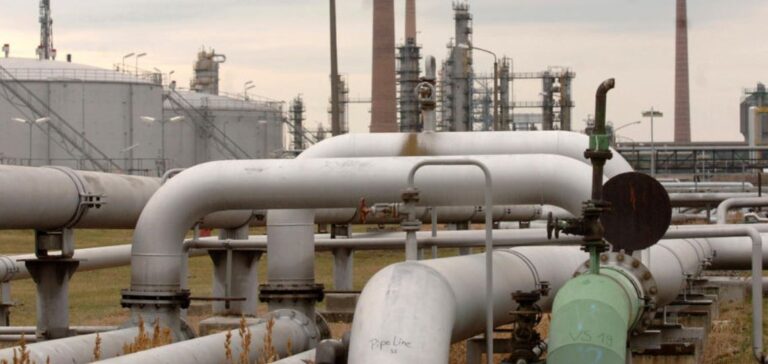Hungary is in the midst of an energy dispute with Ukraine, which is hindering the transit of Russian oil to Budapest.
This situation is jeopardizing energy supplies to Hungary and Slovakia, both of which depend on crude oil deliveries via the Druzhba pipeline. Hungary benefits from an exemption from the European oil embargo imposed after Moscow’s offensive, but Kiev’s recent actions pose serious challenges.
Hungary’s Foreign Minister, Peter Szijjarto, denounced Ukraine’s decision to block deliveries from Russian giant Lukoil.
This decision, described as “unacceptable and incomprehensible”, represents a serious threat to the energy security of both countries.
Szijjarto voiced these concerns at a meeting with his counterparts in Brussels, stressing that the temporary measures put in place are not viable in the medium and long term.
Consultations requested with the European Union
Faced with this situation, Hungary and Slovakia have asked the European Commission to launch consultations within three days to resolve what they consider to be a “violation of the EU-Ukraine Association Agreement”.
Slovak Prime Minister Robert Fico also criticized Kiev’s tightened sanctions against Lukoil, calling them “absurd measures” harmful to certain EU members.
In the absence of an amicable settlement, an arbitration tribunal could be set up to rule on the dispute.
Hungary, while maintaining tense relations with Kiev, has maintained close ties with Moscow.
Hungarian Prime Minister Viktor Orban is the only EU leader to have maintained close relations with the Kremlin, particularly in the energy sector.
Reactions from the European Union
Viktor Orban’s recent visit to Moscow to meet Vladimir Putin has exacerbated tensions within the EU.
The meeting, which took place without prior consultation, angered the EU’s partners.
In response, the European Commission announced a boycott of meetings in Hungary, limiting representation to senior officials until the end of the year.
The EU is also considering boycotting a meeting of foreign ministers scheduled to take place in Budapest in August.
This complex situation highlights the current energy and diplomatic challenges in Central Europe.
Relations between Hungary, Ukraine and Russia, and the EU’s responses, will continue to evolve over the coming weeks, with potential implications for the region’s energy security.






















